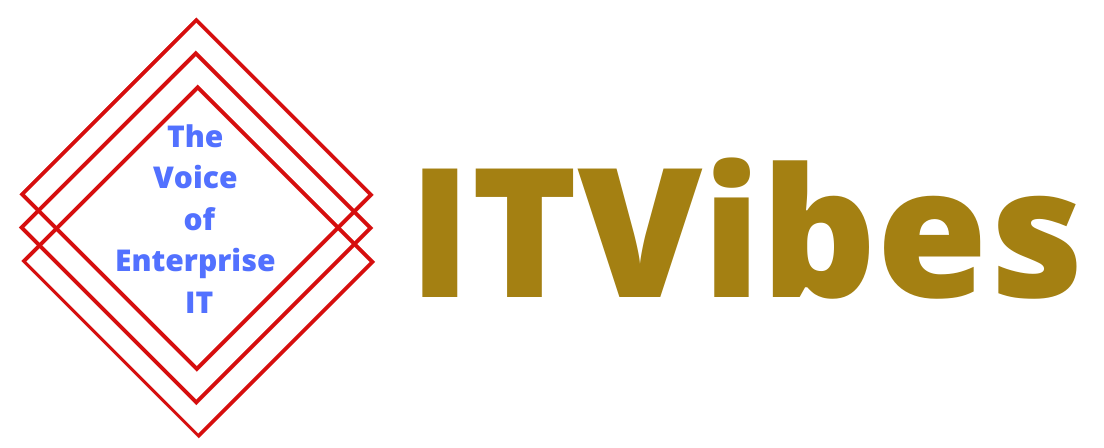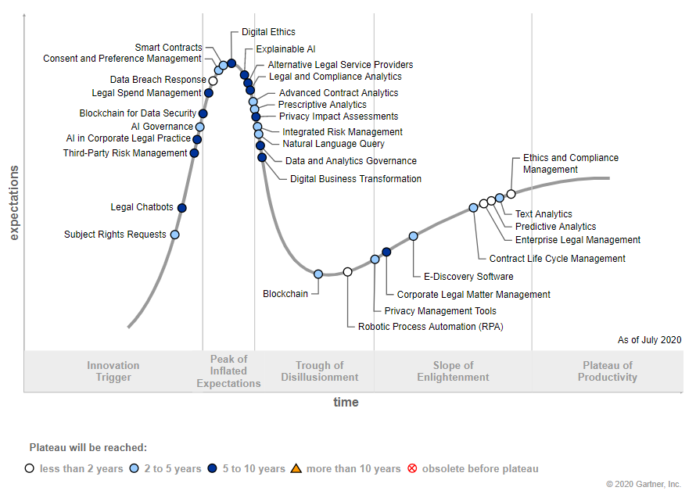COVID has accelerated business transformation across industries with digital technologies. Legal Tech and Compliance Technologies are no exception. Gartner’s Hype Cycle for legal tech and compliance technologies has listed 31 technologies impact on legal and compliance leaders.
Legal departments’ interest in technology is on the rise. Gartner says the latest Hype Cycle for Legal Tech and Compliance Technologies can be used for internal planning and prioritization of emerging innovations.
“Legal and compliance leaders must collaborate with other stakeholders to garner support for organization-wide and function wide investments in technology,” said Zack Hutto, director in the Gartner Legal and Compliance practice.
“They must address complex business demand by investing in technologies and practices to better anticipate, identify and manage risks while seeking out opportunities to contribute to growth.”
Leaders should focus on the technologies that have the highest potential. The position on the Hype Cycle is part of that but not the whole story.
Gartner Analysts
Also read: Australian law firm deploys AI to reduce time for processing claims
The most important Legal Tech and Compliance Technologies:
- Enterprise Legal Management
- Predictive Analytics
- Robotic Process Automation (RPA)
- Subject Rights Requests
“These technologies could help with cost optimization and unplanned legal work arising from COVID impact”.
Watch: Video on the Growing Importance of Artificial Intelligence
Predictive Analytics and RPA
Although predictive analytics is a well-established and mature market, its application to Legal Tech and Compliance requirements is less mature, if not nascent.
This likely means untapped use cases where existing solutions could be used in the legal and compliance context to offer some real benefits.
RPA’s potential to streamline workflows for repetitive, rule-based tasks is already well-established in other business functions. Where legal departments already use systems automating repetitive work, it is likely that RPA can drive higher efficiency.
Also read: Australian Law firm deploys AI to reduce the time required for insurance claims assessment
“Legal leaders should take a lesson from ERP’s evolution: ‘monolithic’ IT systems tend to lack flexibility and can quickly become an anchor, not a sail.”
Gartner Analysts
Enterprise Legal Management
“Just as enterprise resource planning (ERP) overhauled finance, there is a promise for a foundational system of record to improve in-house legal operations and workflows.
“Legal leaders should take a lesson from ERP’s evolution: ‘monolithic’ IT systems tend to lack flexibility and can quickly become an anchor, not a sail.”
Legal application leaders and general counsel must begin with their desired business outcomes, and only then find a technology that can help deliver those outcomes.
Also read: Australian law firms defy pandemic, step-up digital and technology investments amid growth
Blockchain as part of Legal Tech
Gartner highlighted the advice to consider these four technologies is not solely based on their position on the Hype Cycle.
Leaders of Legal tech and compliance technologies should focus on the technologies that have the highest potential. The position on the Hype Cycle is part of that but not the whole story.
For example, Mr. Hutto said blockchain is a technology that has the potential to make a successful journey to the Plateau of Productivity within five years.
But for now, its application will likely be limited to quite a narrow set of use cases, and it is unlikely to be transformational for corporate legal and compliance leaders.













